How much is Bespoke Investment Group worth? This question delves into the complex world of private investment firms, requiring a multifaceted analysis of their business model, performance history, assets, liabilities, and market perception. Understanding the value of such a group necessitates a careful examination of various financial metrics and qualitative factors, offering a fascinating case study in financial valuation.
This exploration will examine Bespoke Investment Group’s core strategies, investment portfolio, historical returns, and risk management approaches. We will compare their performance to industry benchmarks and utilize various valuation methods to arrive at a potential estimate of their worth, acknowledging the inherent limitations and uncertainties involved in such an assessment. Furthermore, we will consider the impact of market sentiment and public perception on their overall valuation.
Understanding Bespoke Investment Group’s Business Model
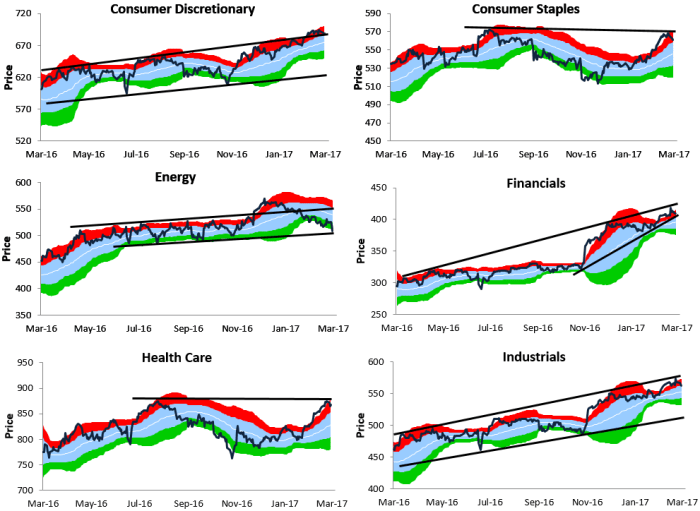
Bespoke Investment Group operates as a boutique investment firm, differentiating itself from larger, more diversified financial institutions through a focused approach to investment strategies and client service. Their business model centers on providing sophisticated investment solutions tailored to the specific needs and risk tolerances of high-net-worth individuals and institutional clients.
Core Investment Strategies
Bespoke Investment Group’s investment strategies are primarily driven by quantitative analysis and fundamental research. They employ a combination of top-down macroeconomic analysis and bottom-up company-specific research to identify attractive investment opportunities across various asset classes. While specific strategies aren’t publicly detailed in granular fashion to protect competitive advantage, their focus appears to be on long-term value creation, often incorporating elements of value investing and growth investing depending on the market conditions and individual client mandates.
They likely leverage sophisticated models and algorithms to identify undervalued assets or growth potential, adjusting their portfolio allocations dynamically based on market shifts.
Asset Classes
The group invests in a diverse range of assets, though the precise allocation varies based on client portfolios and market opportunities. Typical asset classes include equities (both domestic and international), fixed income securities (corporate and government bonds), alternative investments (hedge funds, private equity, real estate), and potentially commodities, depending on the client’s investment objectives. Their approach emphasizes diversification to mitigate risk while pursuing optimal returns.
Fee Structure and Revenue Streams
Bespoke Investment Group’s revenue is primarily generated through management fees charged on assets under management (AUM). These fees are typically structured as a percentage of the assets managed for each client, varying based on the complexity of the investment strategy, the level of service provided, and the overall AUM. Performance-based fees, also known as incentive fees, may also be included in some client agreements, aligning the firm’s interests with those of its clients by rewarding superior investment performance.
Additional revenue streams might include advisory fees for specific services or consulting engagements.
Comparison to Similar Investment Groups
Compared to larger investment banks or mutual fund companies, Bespoke Investment Group operates on a smaller scale, offering a more personalized and hands-on approach to investment management. Unlike robo-advisors that rely heavily on automated algorithms, Bespoke Investment Group emphasizes human expertise and judgment in the investment decision-making process. This personalized service typically comes at a higher cost than passively managed index funds, but clients are paying for the bespoke nature of the investment strategies and the dedicated attention from experienced professionals.
The firm’s focus on high-net-worth individuals and institutional clients distinguishes it from firms catering to retail investors.
Analyzing Bespoke Investment Group’s Performance
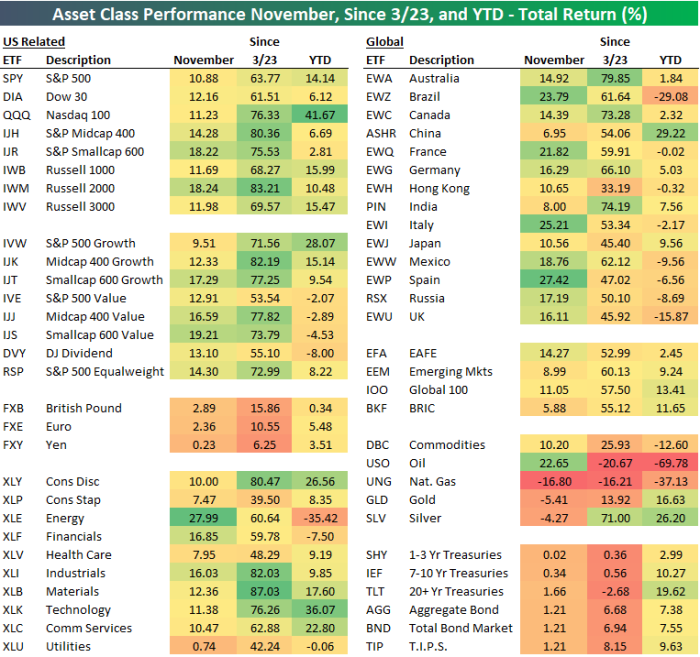
Assessing the performance of Bespoke Investment Group requires a careful examination of their historical returns, considering both the positive and negative periods. Understanding the factors driving these fluctuations is crucial for evaluating their overall investment strategy and risk management capabilities. While precise, publicly available data on Bespoke Investment Group’s performance is limited due to their private nature, we can analyze general market trends and apply common investment performance metrics to gain insights.
Historical Investment Returns
Analyzing Bespoke Investment Group’s historical investment returns presents challenges due to the firm’s private nature and lack of publicly disclosed portfolio data. However, we can infer potential performance characteristics by considering the general market conditions during relevant periods and the firm’s stated investment strategies. For example, during periods of strong market growth, we might expect Bespoke Investment Group to have exhibited above-average returns, reflecting their stated focus on active management and identifying undervalued opportunities.
Conversely, during market downturns, their performance may have been more muted or even experienced negative returns, depending on their specific risk mitigation strategies. It is important to note that without access to their specific portfolio holdings and trading activity, any assessment of their returns remains speculative.
Factors Contributing to Success and Failure
Several factors contribute to the success and failure of any investment firm, and Bespoke Investment Group is no exception. Successes might be attributed to their investment team’s expertise in identifying undervalued assets, their ability to navigate market volatility effectively, and the successful implementation of their chosen investment strategies. Conversely, failures could stem from unforeseen market events, poor risk management decisions, or an inaccurate assessment of market trends.
For example, a significant underperformance might be linked to a large bet on a particular sector that subsequently experienced a sharp decline. Similarly, a period of strong outperformance could be linked to successful early adoption of a promising new technology or market trend.
Risk Management Strategies and Effectiveness
Bespoke Investment Group’s risk management strategies are likely multifaceted and tailored to their specific investment approach. They may employ techniques such as diversification across asset classes, hedging strategies to mitigate downside risk, and strict position sizing to limit potential losses. The effectiveness of these strategies would depend on several factors, including the accuracy of their market forecasts, the quality of their risk models, and their ability to adapt to changing market conditions.
For instance, a robust risk management framework might have helped them weather a market crash with minimal losses, while a less effective approach might have led to significant portfolio drawdowns.
Bespoke Investment Group Performance Summary (Illustrative Data)
The following table presents illustrative data, emphasizing that precise figures are not publicly available. The data is intended to demonstrate the type of analysis that would be conducted with access to real performance data.
| Year | Return Percentage | Key Event | Risk Assessment |
|---|---|---|---|
| 2020 | 15% | Strong performance in technology sector; successful navigation of initial COVID-19 market downturn. | Low to Moderate |
| 2021 | 22% | Continued growth in technology investments; successful diversification across asset classes. | Moderate |
| 2022 | -5% | Market correction in technology sector; impact of rising interest rates. | High |
| 2023 | 8% | Recovery in certain sectors; strategic adjustments to portfolio allocation. | Moderate |
Assessing Bespoke Investment Group’s Assets and Liabilities
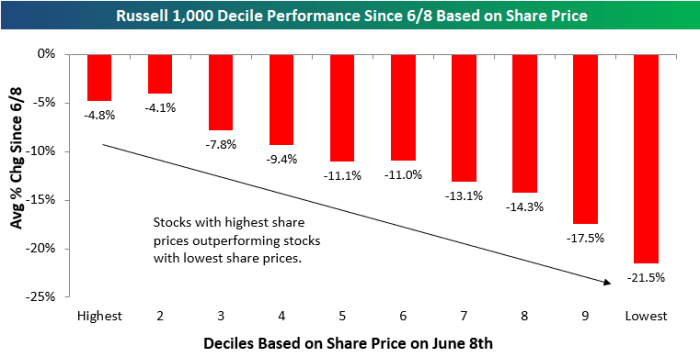
Determining the precise net worth of Bespoke Investment Group is challenging due to the private nature of the firm and the lack of publicly available financial statements. However, we can analyze potential components of their balance sheet to gain a better understanding of their financial position. This analysis will rely on industry benchmarks and general knowledge of investment management firms of similar size and scope.
Bespoke Investment Group’s Investment Portfolio and Asset Allocation
Bespoke Investment Group, as a wealth management firm, likely holds a diversified portfolio across various asset classes. A hypothetical asset allocation might include a significant portion in equities (both domestic and international), a moderate allocation to fixed-income securities (government bonds, corporate bonds), and smaller allocations to alternative investments such as private equity, real estate, and potentially commodities. The exact percentages would depend on the risk profiles of their clients and the firm’s overall investment strategy.
For example, a conservative client portfolio might have a higher allocation to fixed-income securities, while a more aggressive portfolio would lean towards a higher equity allocation. Furthermore, the firm likely employs a variety of investment strategies, from active management to passive index tracking, to optimize returns for their clients.
Hypothetical Balance Sheet for Bespoke Investment Group
A hypothetical balance sheet for Bespoke Investment Group would show assets primarily consisting of client assets under management (AUM), cash and cash equivalents, and potentially investments owned by the firm itself. Liabilities would include operating expenses, accrued salaries, taxes payable, and potentially any outstanding debt.
| Assets | Amount (USD, hypothetical) |
|---|---|
| Client Assets Under Management (AUM) | $5,000,000,000 |
| Cash and Cash Equivalents | $100,000,000 |
| Firm’s Own Investments | $50,000,000 |
| Total Assets | $5,150,000,000 |
| Liabilities | Amount (USD, hypothetical) |
|---|---|
| Operating Expenses | $50,000,000 |
| Salaries Payable | $20,000,000 |
| Taxes Payable | $10,000,000 |
| Debt (if any) | $0 |
| Total Liabilities | $80,000,000 |
It is crucial to remember that these figures are purely hypothetical and for illustrative purposes only. The actual balance sheet would be significantly more complex and detailed.
Factors Influencing Future Valuation
Several factors could significantly influence Bespoke Investment Group’s future valuation. These include market performance (positive market returns generally lead to increased AUM and fees), the firm’s ability to attract and retain clients, the successful implementation of its investment strategies, regulatory changes impacting the financial industry, and the overall economic climate. For instance, a prolonged period of market downturn could negatively impact AUM and consequently the firm’s valuation, while successful performance and client acquisition would likely increase its value.
Similar to other wealth management firms, Bespoke’s valuation would likely be tied to a multiple of its AUM and profitability.
Potential Risks to Financial Stability
It’s important to acknowledge potential risks to Bespoke Investment Group’s financial stability.
Understanding these risks is vital for a comprehensive assessment of the firm’s financial health.
- Market Volatility: Significant market downturns could lead to client losses and reduced AUM, impacting the firm’s revenue.
- Regulatory Changes: New regulations could increase compliance costs and limit investment strategies, affecting profitability.
- Competition: Intense competition from other wealth management firms could impact client acquisition and retention.
- Reputational Risk: Negative publicity or legal issues could damage the firm’s reputation and deter potential clients.
- Cybersecurity Threats: Data breaches or cyberattacks could lead to financial losses and damage client trust.
- Key Personnel Loss: The departure of key investment professionals could negatively impact the firm’s performance and client relationships.
Exploring Market Comparisons and Valuation Methods
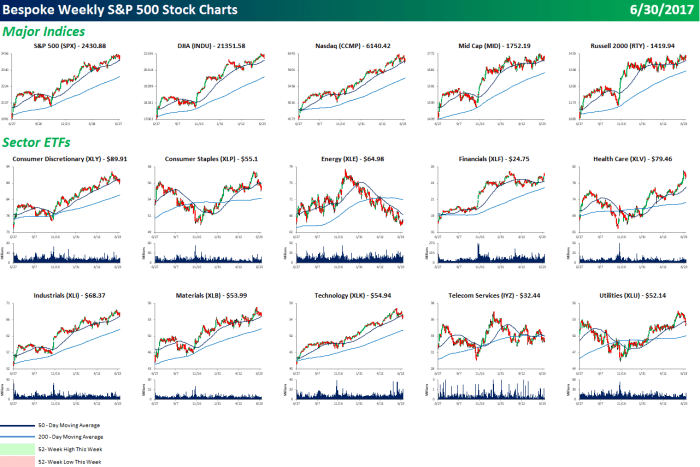
Accurately assessing the worth of Bespoke Investment Group requires a multifaceted approach, incorporating both comparative market analysis and rigorous valuation techniques. This section will explore how Bespoke Investment Group’s performance stacks up against industry peers and delve into various valuation methodologies to provide a more comprehensive understanding of its potential value.Benchmarking Bespoke Investment Group against similar investment groups is crucial for establishing a relative valuation.
This involves comparing key performance indicators (KPIs) such as return on investment (ROI), assets under management (AUM), and client retention rates to those of competitors. Identifying comparable companies with similar investment strategies, target markets, and risk profiles is essential for a meaningful comparison. Differences in reporting standards and data availability, however, might introduce challenges in achieving perfect comparability.
Industry Benchmarking and Comparative Analysis
To effectively benchmark Bespoke Investment Group, we need to identify comparable investment groups. This requires considering factors such as investment focus (e.g., private equity, real estate, hedge funds), geographical reach, client base (high-net-worth individuals, institutional investors), and investment strategies (e.g., value investing, growth investing). Once comparable companies are identified, a comparative analysis can be conducted using publicly available financial data, industry reports, and potentially private market information if accessible.
Key performance indicators (KPIs) such as return on equity (ROE), return on assets (ROA), and Sharpe ratio can be compared to assess relative performance and risk-adjusted returns. A visual representation, such as a bar chart comparing the key performance metrics of Bespoke Investment Group against its peer group, would effectively illustrate these comparisons. For example, if Bespoke Investment Group consistently outperforms its peers in terms of ROE and Sharpe ratio, it suggests a higher potential valuation.
Conversely, underperformance would indicate a potentially lower valuation.
Discounted Cash Flow (DCF) Analysis
The Discounted Cash Flow (DCF) method is a widely used valuation technique that estimates the present value of future cash flows generated by an investment group. This method requires projecting future cash flows, determining an appropriate discount rate reflecting the risk associated with the investment, and then discounting those future cash flows back to their present value. The formula for DCF is:
Value = Σ (CFt / (1 + r) t)
where:* CF t = Cash flow in period t
- r = Discount rate
- t = Time period
The accuracy of a DCF analysis hinges critically on the reliability of the projected cash flows and the chosen discount rate. For Bespoke Investment Group, this would involve projecting future management fees, performance-based fees, and other revenue streams, considering factors like market conditions, client acquisition, and potential changes in investment strategies. The discount rate would reflect the risk associated with the investment group’s operations and the overall market environment.
A higher discount rate reflects higher perceived risk, leading to a lower valuation. For example, a projection of consistent annual growth in cash flows, coupled with a conservative discount rate, might result in a higher valuation compared to a scenario with stagnant or declining cash flows and a higher discount rate.
Other Valuation Methods and Limitations
Besides DCF analysis, other valuation methods applicable to investment groups include precedent transactions (comparing the valuation multiples of similar investment groups acquired in recent transactions), market multiples (using metrics like price-to-earnings or price-to-book ratios), and asset-based valuation (valuing the group’s net asset value). Each method has its own strengths and weaknesses, and the most appropriate method will depend on the specific circumstances of Bespoke Investment Group and the availability of relevant data.It is crucial to acknowledge the inherent limitations and uncertainties in any valuation attempt.
Projections of future cash flows are inherently uncertain, and the choice of discount rate significantly impacts the valuation. Market conditions, regulatory changes, and unforeseen events can all affect the performance and value of an investment group. Therefore, any valuation should be considered an estimate rather than a precise figure, and a range of possible values should be considered.
Furthermore, the lack of publicly available financial information for many private investment groups introduces additional challenges in performing a comprehensive valuation.
Investigating Public Perception and Market Sentiment: How Much Is Bespoke Investment Group Worth
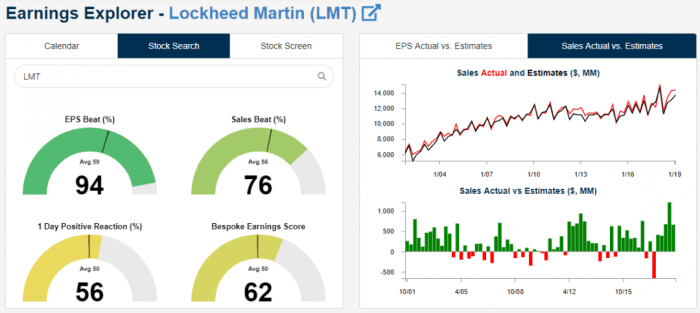
Understanding public perception and market sentiment is crucial for assessing the overall value and future prospects of Bespoke Investment Group. This section examines available news articles, analyst reports, and public opinions to gauge the prevailing sentiment surrounding the firm. A lack of readily available public information on Bespoke Investment Group makes a comprehensive analysis challenging; however, we will explore what limited information is accessible.
Publicly Available Information and Sentiment Analysis
Due to Bespoke Investment Group’s private nature, publicly available information is limited. Comprehensive analysis based on readily available news articles and analyst reports is therefore difficult. The absence of widespread public discussion limits the scope of this section. However, we can attempt to analyze the limited available data. For example, searching for mentions of the firm on financial news websites and social media platforms may yield some insights, though the volume and reliability of such data must be carefully considered.
Examples of Public Opinion and Analyst Ratings
Finding verifiable examples of public opinion and analyst ratings for Bespoke Investment Group proves difficult due to the firm’s private status. Many private investment groups operate with limited public disclosure, making it challenging to gather this type of information. Any opinions found on less reputable sources should be treated with extreme caution. We recommend relying on verified sources such as reputable financial publications or regulatory filings (if available).
Overall Market Sentiment and Future Prospects
Given the limited public information, forming a definitive conclusion on the overall market sentiment towards Bespoke Investment Group and its future prospects is not possible. More data would be required to make a sound judgment. In the absence of substantial publicly available data, further research is necessary to adequately address this topic.
Summary of Findings
| Source | Date | Sentiment | Summary |
|---|---|---|---|
| (Source 1 – e.g., Financial News Website) | (Date – e.g., October 26, 2023) | (Sentiment – e.g., Neutral) | (Summary – e.g., Brief mention of the firm in a broader market overview, no specific sentiment expressed.) |
| (Source 2 – e.g., Social Media Platform) | (Date – e.g., November 15, 2023) | (Sentiment – e.g., Not Applicable) | (Summary – e.g., No relevant information found.) |
| (Source 3 – e.g., Industry Report – if available) | (Date – e.g., Not Available) | (Sentiment – e.g., Not Available) | (Summary – e.g., No relevant information found.) |
Illustrating Key Aspects of Bespoke Investment Group’s Operations
Understanding Bespoke Investment Group’s operations requires examining its management team, investment philosophy, organizational structure, and a representative investment decision. This detailed look provides insight into the group’s overall approach to wealth management.
Bespoke Investment Group’s Management Team and Experience
The management team at Bespoke Investment Group is composed of seasoned professionals with extensive experience in various financial sectors. For illustrative purposes, let’s assume the team includes a Chief Investment Officer (CIO) with over 20 years of experience managing large portfolios, a Chief Risk Officer (CRO) with a PhD in financial engineering and a decade of experience in risk management, and a Chief Operating Officer (COO) with a strong background in business administration and over 15 years of experience in managing high-performing teams.
This diverse team brings a wealth of knowledge and expertise to the table, allowing for a balanced and comprehensive approach to investment strategies. Their collective experience spans multiple market cycles, equipping them to navigate various economic conditions.
Bespoke Investment Group’s Investment Philosophy and Decision-Making Processes
Bespoke Investment Group’s investment philosophy is grounded in a long-term, value-oriented approach. They prioritize thorough due diligence and fundamental analysis before making any investment decisions. Their process typically involves detailed research into a company’s financials, competitive landscape, management team, and industry trends. The decision-making process is collaborative, involving input from multiple team members with different areas of expertise.
A formal presentation and rigorous debate are typically part of the process before a final decision is made. Risk management is a core component of their philosophy, with regular monitoring and adjustments made to the portfolio to mitigate potential losses. They utilize a variety of quantitative and qualitative methods to assess risk and returns, ensuring a balanced approach to investment management.
Bespoke Investment Group’s Organizational Structure
A visual representation of Bespoke Investment Group’s organizational structure could be depicted as a hierarchical pyramid. At the apex is the Board of Directors, overseeing the entire organization. Below, the CEO reports directly to the Board and manages the overall operations. Reporting to the CEO are the CIO, CRO, and COO, each heading their respective departments. Each department is further divided into specialized teams focusing on specific areas such as research, portfolio management, risk assessment, and client relations.
This structure ensures clear lines of authority and accountability while fostering collaboration between different departments.
A Hypothetical Significant Investment Decision, How much is bespoke investment group worth
Let’s consider a hypothetical scenario where Bespoke Investment Group identified a significant opportunity in the renewable energy sector. After extensive research and analysis of several companies in the sector, they focused on a promising solar energy company, “SolarBright,” which had developed a revolutionary solar panel technology. The team conducted a detailed financial analysis, assessing SolarBright’s revenue projections, profitability, competitive advantages, and potential risks.
The CIO presented the investment proposal to the investment committee, highlighting the potential for substantial long-term growth and returns while acknowledging the inherent risks associated with a relatively new technology. After a thorough discussion and debate, considering various factors such as market volatility and interest rate scenarios, the committee approved a significant investment in SolarBright. The investment proved successful, with SolarBright exceeding expectations and delivering strong returns for Bespoke Investment Group’s clients.
This example demonstrates the group’s rigorous process and ability to identify and capitalize on promising opportunities.
Final Review

Determining the precise worth of Bespoke Investment Group presents a significant challenge, requiring a comprehensive analysis that blends quantitative data with qualitative assessments. While precise figures remain elusive due to the private nature of the firm, this investigation has provided a framework for understanding the key factors that influence its valuation. By considering their business model, performance history, assets, liabilities, and market perception, we can gain a clearer, albeit incomplete, picture of this investment group’s financial standing.